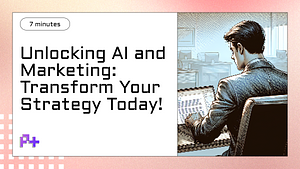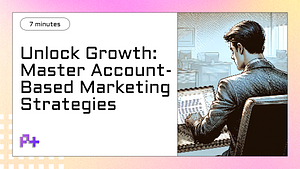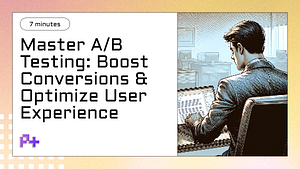Summary
- 1. Understanding the Benefits of AI in CRM: How It Can Transform Your Business
- 2. Top AI-Powered CRM Tools to Explore in 2025
- 3. Overcoming Key Challenges When Implementing AI in Your CRM System
- 4. Real-World Success Stories: How AI CRM Solutions Drive Results
- 5. Getting Started with AI in CRM: Steps to Take and Resources to Use
1. Understanding the Benefits of AI in CRM: How It Can Transform Your Business
The integration of AI in Customer Relationship Management (CRM) systems is revolutionizing the way businesses interact with their customers. One of the primary benefits of AI in CRM is its ability to analyze vast amounts of data quickly and accurately. By leveraging machine learning algorithms, AI can uncover patterns and insights that human analysts might overlook. This data-driven approach enables businesses to tailor their marketing strategies, personalize customer experiences, and ultimately improve customer satisfaction. For instance, AI can predict customer behavior, allowing companies to proactively address needs and concerns, fostering stronger relationships and loyalty.
Another significant advantage of AI in CRM is automation. Routine tasks such as data entry, lead scoring, and follow-up reminders can be automated, freeing up valuable time for sales and customer service teams. This automation not only enhances productivity but also reduces the risk of human error, ensuring that customer interactions are consistent and reliable. Additionally, AI-powered chatbots can provide 24/7 support, addressing customer inquiries instantly and efficiently. This level of responsiveness not only improves the customer experience but also allows human agents to focus on more complex issues that require personal attention.
Furthermore, AI in CRM systems can enhance decision-making through advanced analytics and reporting. By providing real-time insights into customer interactions and sales performance, businesses can make informed strategic decisions. For example, AI can help identify the most profitable customer segments, optimize marketing campaigns, and assess the effectiveness of sales strategies. This comprehensive understanding of customer data empowers businesses to adapt and respond to market changes swiftly, ensuring they remain competitive. In summary, incorporating AI into CRM not only streamlines operations but also empowers businesses to build lasting relationships with their customers, ultimately driving growth and success.
2. Top AI-Powered CRM Tools to Explore in 2025
As businesses increasingly turn to technology to enhance customer relationships, AI-powered CRM tools are at the forefront of this evolution. In 2025, several standout platforms are expected to dominate the market, offering innovative features that harness the power of artificial intelligence to streamline customer interactions, improve sales processes, and enhance overall customer satisfaction. Leading the charge are tools like Salesforce Einstein, HubSpot CRM, and Zoho CRM, each incorporating advanced AI capabilities to provide actionable insights and personalized experiences.
Salesforce Einstein is renowned for its robust AI functionalities, enabling businesses to analyze customer data and predict future behaviors. This tool leverages machine learning to automate routine tasks, allowing sales teams to focus on building relationships and closing deals. Additionally, its integration with various third-party applications enhances its capabilities, making it a versatile choice for businesses of all sizes. As we move into 2025, Salesforce Einstein is expected to continue evolving, offering new features that further simplify complex processes while delivering deeper insights into customer needs.
Another compelling option is HubSpot CRM, which combines user-friendly design with powerful AI features. In 2025, HubSpot is anticipated to expand its AI-driven analytics and predictive lead scoring, helping businesses prioritize leads with the highest potential for conversion. Its automation tools streamline marketing campaigns and customer follow-ups, ensuring that no opportunity is missed. With a strong community and extensive educational resources, HubSpot CRM remains an excellent choice for companies looking to harness AI technology without sacrificing ease of use. As these AI CRM tools continue to evolve, businesses that adopt them will likely see significant improvements in customer engagement and retention.
3. Overcoming Key Challenges When Implementing AI in Your CRM System
Implementing AI in your CRM system can revolutionize how businesses manage customer relationships, but it also comes with its own set of challenges. One of the primary hurdles is data quality and integration. For AI algorithms to function effectively, they require access to clean, structured, and relevant data. Organizations often struggle with disparate data sources, outdated information, and inconsistent data formats. To overcome this challenge, businesses must invest in data cleansing and integration tools that ensure all customer data is accurate and easily accessible. Establishing a centralized data repository can facilitate smoother AI integration, enabling the system to analyze customer interactions more effectively and deliver actionable insights.
Another significant challenge is the resistance to change among employees. Many staff members may feel threatened by AI technologies, fearing that automation could replace their roles. This apprehension can hinder the successful adoption of AI in your CRM system. To mitigate this issue, it’s crucial to foster a culture of collaboration between humans and AI. Providing thorough training and emphasizing the value of AI as a tool to enhance human capabilities can help alleviate fears. Additionally, involving employees in the implementation process ensures that their insights and feedback are considered, making them more likely to embrace the new technology.
Lastly, ensuring that the AI tools align with your business goals is vital for a successful implementation. Many organizations jump into adopting AI without a clear strategy, leading to misaligned expectations and underwhelming results. To overcome this challenge, businesses should define their objectives for using AI in CRM clearly. Whether it’s improving customer satisfaction, increasing sales efficiency, or enhancing predictive analytics, having specific goals will guide the selection of appropriate AI tools and applications. Regularly reviewing the performance of these AI systems against set benchmarks will help organizations refine their strategies and maximize the benefits of AI in their CRM systems.
4. Real-World Success Stories: How AI CRM Solutions Drive Results
In recent years, AI CRM (Customer Relationship Management) solutions have transformed the way businesses interact with their customers, leading to remarkable success stories across various industries. One notable example is the global retail giant, Walmart, which implemented an AI-driven CRM system to enhance customer engagement and streamline operations. By utilizing predictive analytics and machine learning algorithms, Walmart was able to analyze purchasing patterns and preferences, enabling personalized marketing campaigns. This resulted in a 10% increase in customer retention rates, showcasing the powerful influence of AI CRM in fostering strong customer relationships.
Another compelling success story comes from the financial services sector, where American Express adopted an AI CRM solution to improve its customer service experience. By integrating AI chatbots and virtual assistants into their CRM system, American Express was able to provide instant support and resolve customer queries more efficiently. The AI-driven insights allowed the company to proactively address customer needs, leading to a 20% reduction in response times and significantly enhancing customer satisfaction. This demonstrates how AI CRM solutions not only streamline operations but also elevate the overall customer experience, resulting in increased loyalty and brand trust.
In the B2B landscape, companies like HubSpot have leveraged AI CRM technology to drive sales and marketing effectiveness. By employing AI algorithms to analyze customer data and segment audiences, HubSpot enabled its users to create highly targeted campaigns that resonate with specific customer needs. This strategic use of AI CRM features led to a 30% increase in lead conversion rates for many businesses utilizing their platform. These real-world success stories highlight the transformative power of AI CRM solutions, as they help organizations not only to adapt to changing market dynamics but also to achieve measurable business outcomes through improved customer engagement and satisfaction.
5. Getting Started with AI in CRM: Steps to Take and Resources to Use
Getting started with AI in CRM can seem daunting, but by following a structured approach, businesses can leverage AI technologies to enhance their customer relationship management. The first step is to assess your current CRM system and identify areas where AI can add value. This may include automating repetitive tasks, enhancing data analysis, or improving customer interactions. For instance, if your CRM lacks robust analytics capabilities, integrating AI tools can help uncover valuable insights into customer behavior and preferences, enabling more personalized marketing strategies.
Once you've identified the potential applications of AI in your CRM, the next step is to choose the right AI tools or platforms. There are several AI-powered CRM solutions available, each offering unique features tailored to different business needs. Popular options include Salesforce Einstein, HubSpot, and Zoho CRM, which provide various AI functionalities such as predictive analytics, chatbots, and lead scoring. It’s essential to evaluate these tools based on your specific requirements, budget, and integration capabilities with your existing systems. Additionally, consider starting with a pilot project to test the AI features before a full-scale implementation.
Lastly, investing in training and resources is crucial for a successful AI integration in your CRM. Equip your team with the knowledge they need to leverage AI effectively by providing training sessions, webinars, and access to online resources. Engaging with AI communities and forums can also provide valuable insights and practical tips from other users. By fostering a culture of continuous learning and adaptation, your organization can maximize the benefits of AI in CRM, ultimately leading to improved customer satisfaction and business growth.



